The Midnight Library: The No.1 Sunday Times bestseller and worldwide phenomenon
£4.80£9.50 (-49%)
THE SUNDAY TIMES NUMBER ONE BESTSELLING WORLDWIDE PHENOMENON
READERS’ MOST LOVED BOOK OF 2021
WINNER OF THE GOODREADS CHOICE AWARD FOR FICTION
‘BEAUTIFUL’ Jodi Picoult, ‘UPLIFTING’ i, ‘BRILLIANT’ Daily Mail, ‘AMAZING’ Joanna Cannon, ‘ABSORBING’ New York Times, ‘THOUGHT-PROVOKING’ Independent
Nora’s life has been going from bad to worse. Then at the stroke of midnight on her last day on earth she finds herself transported to a library. There she is given the chance to undo her regrets and try out each of the other lives she might have lived. Which raises the ultimate question: with infinite choices, what is the best way to live?
Read more
Additional information
| Publisher | Canongate Books, Main edition (18 Feb. 2021) |
|---|---|
| Language | English |
| Paperback | 304 pages |
| ISBN-10 | 1786892731 |
| ISBN-13 | 978-1786892737 |
| Dimensions | 12.9 x 1.93 x 19.8 cm |

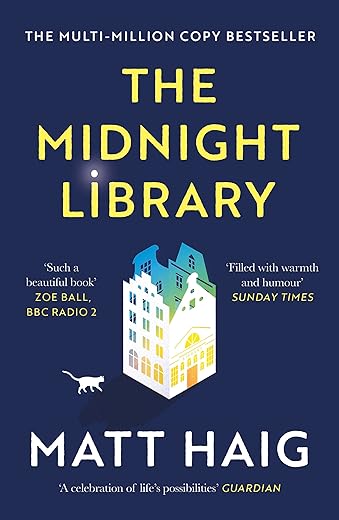
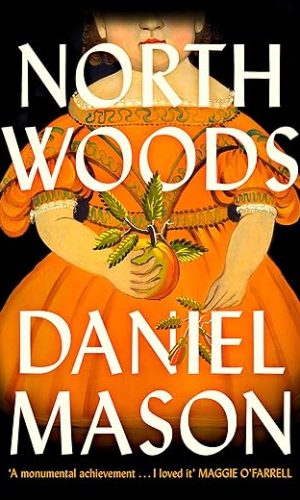
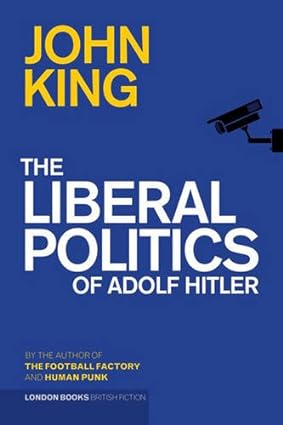
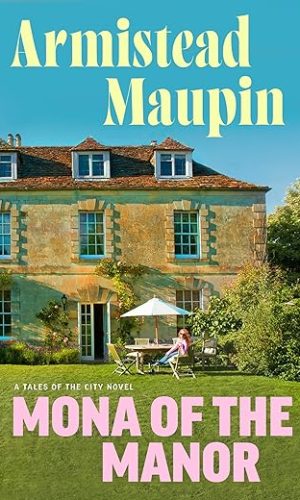
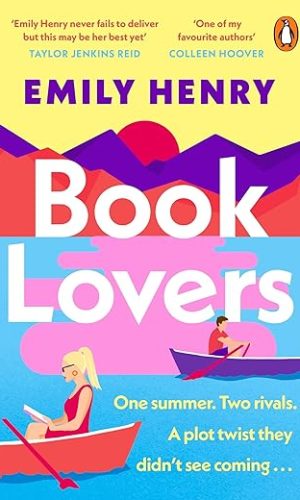
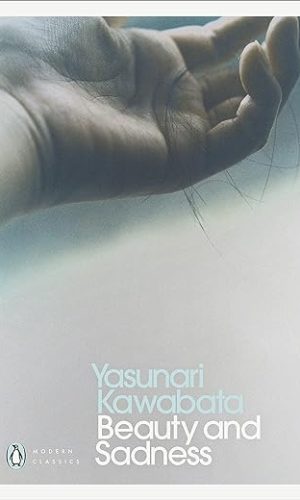
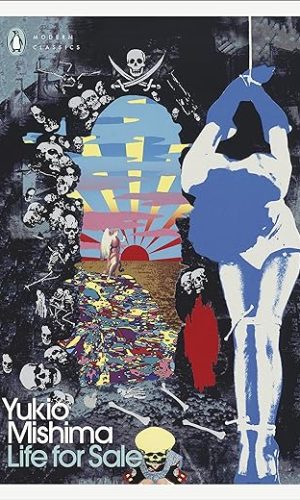
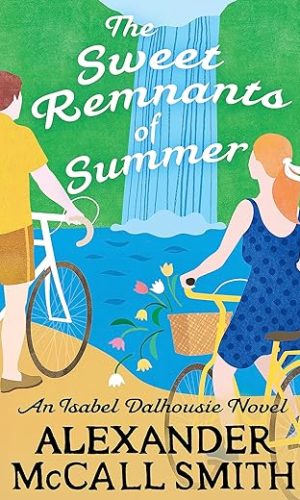

by Nina Quick
I really enjoyed this novel and some of the ideas presented in it. I think it is a deeply optimistic book, as the author keeps giving the main character choices on which life she would like to lead, and to discover what really makes them happy. I wasn’t totally convinced by the author using a female voice, I wasn’t convinced by it, but the plot was interesting and pacy. I think it makes you question your choices in life and where they have brought you. Thoughtful writing overall.
by Mr Monster Hat
This review will contain very mild spoilers just so you know.
I remember the day I decided to die.
Just like Nora Seed at the beginning of the novel I wanted to die. Although in my case it wasn’t something I had planned a few days before nor was it because of a sequence of events. I had just had enough. I had run out of strength to fight any more. I had spent so long living with major deep depression – too long. Every day existing in a pitch black and inescapable prison of absolute misery. I had run out of time, run out of hope, and nothing in the tank left for the fight.
I just wanted to establish that I understand what the protagonist felt and Matt Haig too. I understand the aim of this book. While I applaud the intention, and Matt seems a really great guy, I do not like this book and didn’t enjoy it. I have a number of problems with it. I actually brought this book on the day of its release but wanted to really let the book settle into me before I wrote a review.
My first problem is a simple one: it’s badly written. In fact, shockingly so. I wonder how this guy is a major author because this is exceptionally bad writing. Huge unchewable chunks of this novel are exposition and much of what isn’t breaks the cardinal writer’s rule of “show don’t tell.” It’s also not a good story.
I genuinely think that the author would have been much better suited to writing a self-help book rather than trying to cram this into a novel. As a story driving character-focused novel it is terrible. Characters are entirely unrealistic and seem to only exist to help explain the book’s points.
An example is at the start of the book where Nora finds herself in a magical, seemingly infinite library, her reaction is “yeah, ok but I still want to die.” As I explained at the start of this review. I suffered deep depression. I understand fully. Almost every day I wondered how I would make it to tomorrow. Would I be able to get out of bed and function? Almost every day I researched how I could die quickly and painlessly (it’s quite difficult) and wondered if today would be the day I actually managed to find the “courage to go through with it.” but even I in that state would be pretty impressed with a magical infinite library. Anybody would! But because the author needs the character to want to die she’s not interested and unphased. This happens constantly throughout this book. Characters don’t act or talk like real people. They exist only to serve the authors points.
Moving on to his points which is something I also disagree with. At the start of the novel, we see a sequence of awful things happen to Nora and she decides to die. It’s mentioned in passing that she’s on anti-depressants but the focus is on the awful events.
Now, this surprises me because Matt Haig suffered from depression and himself wanted to die. This is not how depression works and I fear that people reading the book who have either no history of depression or of mild forms will get the wrong idea. Most of the time depression has no discernable cause. This is one of the things that makes it so awful.
But there is nothing wrong with my life, you think. I should be happy! What’s wrong me ME? This fact is one of the leading factors as to why people misunderstand depression. The whole snap out of it, cheer up, what’s wrong with you, sorts of thinking derive wholly from a misunderstanding of what depression is. I feel strongly that this book is dangerous because it enforces the idea that depression is caused by “things that make us sad” or “our life not going to plan” when this is simply not the case. I actually think it wasn’t the intention to come across this way but this is what comes across and I fear is what most people’s take away will be.
The last problem I have with this book is the assertion that acceptance is the thing that will open the doors to happiness. This comes from the philosophy of Buddhism and a featured tenant of mindfulness. It says that no matter where you are and what you are doing there is always something good. Even just being alive is something to be joyous about. We should be present and appreciative no matter what.
I do actually agree that acceptance and gratitude and the small joys lead to a happy life. Where I don’t agree is because this is a philosophy of passivity and simplification.
Just like the assertion that money will not make you happy. This is true. Money will not make you happy. The pursuit of money and things will not make you happy and in fact probably the reverse. However, there is more to it than that. It’s more complicated. For example, many studies have shown a certain amount of money (enough to not worry about bills) has a massive effect on people’s happiness. Above a certain amount this drops off and below the amount, people are much more likely to be unhappy. While it’s true that Money won’t make me happy if I had a million pounds in the bank and could pursue my life’s passions and never have to work again can you really say I wouldn’t be happier? OF course, I would. Happiness comes from within. I could be a millionaire but still be unhappy because I failed to appreciate life, life with passion, and chase dreams and experience instead of things and more money. But in reverse, I could be a millionaire and be much happier than I am now if I did those things.
The same is true of acceptance, joy, and gratitude. Those are important tools for happiness but just accepting your lot in life? I don’t agree. Just like in the previous example of money there is more to it. If I live in a slum and have an awful disgusting job full of cruel injustices and abuse can you seriously tell me that I would not be happier if I had a better life with a job I enjoy and living in a nice clean home in a beautiful part of town? Of COURSE, I would.
We have to want to be more, we have to want to be better versions of ourselves not just for our own lives but those around us. Imagine our world if all the great thinkers, innovators, creators, inventors, artists, and politicians had just accepted their lot in life? Yes, we should strive to be grateful with our lot, we should take joy in the small things, we should be thankful for life itself and the everyday beauty that comes with it but not simply stop there. To insist there is not a better life where you are happier is wrong.
Nora seed wouldn’t have been happier in any of her other lives because she wanted to run from who she is. She would be the same, Nora. This is where the book is wrong.
The book just wasn’t good. It’s so awfully written that even if I agreed with the points it tries to make I still would have been unhappy with it. I’m surprised there are so many great reviews but then the spice girls and a million other boy bands, girl bands, inane YouTubers, and shallow celebs prove that popularity is no guarantee of quality and in fact probably an endorsement for just the opposite.
As I said, I do appreciate what the author is trying to do and applaud him for it, even though we might differ in our what we believe. Next time he should probably just write a self-help book because this is just that but hanging it on a ghost of a story and skeletons of characters creates an awful book that ends up not being either wholly.
by Kindle Customer
Great idea, great story. Left me wanting more. If only we could all have a visit to the midnight library
by Kindle Customer
I’ve only ever read romance and crime books, however I thought I would try something different for a change and I’m so pleased that I decided to step out of my comfort zone.This is such a beautiful book. I found it very moving and ultimately incredibly uplifting. It’s never to late to make a change in your life. And we shouldn’t underestimate the difference we make in the lives of others. I love Matt Haig’s message throughout his books of gentleness and kindness. It left me feeling content and calm. While I think that sometimes there’s holes in the plot, Matt Haig shares an important lesson to all within the pages of ‘The Midnight Library’ we can be more than our pasts and it doesn’t dictate our lives. I’m definitely recommending this to all my friends and family and will definitely be re-reading.
by little bookworm
Unable to endure life any more, Nora Seed takes an overdose, and finds herself in the Midnight Library – a place between life and death, where she has the chance to undo her regrets and live multiple other lives that she could have lived had she made different decisions in her root life. What for instance if she had not given up swimming, or had pursued her one time dream of being in a band, or what if she had not broken off her engagement to Dan? With the help of Mrs Elm, her former school librarian, Nora finds herself trying out some of these different lives, however, will she find a life she actually wants to live?
I absolutely loved the concept of this book. I’m sure everyone of us has at some point wondered what if I had chosen that path instead, that idea of the ‘grass is always greener’. This book takes that concept and runs with it. It also tackles some really important and weighty issues in relation to mental health, a subject matter that I understand the author has personal experience of and has drawn inspiration from in other works too.
Given the subject matter, the beginning of the book does have quite a dreary feel to it, and some readers might find it upsetting. Personally, I think Haig approaches the book with quite a light, almost whimsical writing style, which for me ensured the book never felt too dark and made it quite an easy read. On the downside though, I did find that the writing style perhaps added to the emotional disconnect that I had a problem with throughout the book, and which I will elaborate on further later in the review.
One of the things I personally thought was conveyed really well in the first section of the book before Nora takes the overdose, is how Haig makes it clear that Nora feels she is of no worth to anyone. Having experience of working in mental health, one of the things that health professionals always explore, is ‘protective factors’ i.e. what is there that might stop someone going though with any suicidal thoughts? Whilst thoughts of family and loved ones is the most commonly identified factor, pets are often another, in that they give people a sense of responsibility and being needed and Haig highlighted that really well I thought, in that Nora felt without her cat and without the neighbour needing her to do his weekly shop, there wasn’t anyone she had any responsibility towards, there wasn’t anyone she thought needed her.
I liked how Haig also came back to this idea towards the end of the story, as in another life, Nora realises that without her help her neighbour ends up in a residential home, and that she was actually instrumental in helping him keep his independence. Likewise, one of the young boys she tutors in her root life, in another life without this, ends up getting into trouble with the law, again highlighting the positive impact she was having on someone without truly realizing it. I liked this idea of how out lives interconnect with other peoples’ in a myriad different ways, and that sometimes small things we do, may have more impact then we realize.
I liked how the book explores how we can set up our expectations of ourselves to be too high, and also how we often base this on other peoples’ expectations of us. Particularly in a modern society where social media plays such an important role in many peoples’ lives, people can place huge pressures on themselves, which can affect their mental wellbeing. One of the things Nora realizes as the story goes on and she tries out these different lives, is that quite often the things she didn’t pursue and thought she regretted weren’t actually her own dreams, but other peoples’ dreams, but that in not having taken them up she was weighed down in guilt. Yet when she lived the lives where she pursued these dreams, they didn’t make her happy and so those regrets she had been carrying melted away.
Whilst I liked this idea, I did find that the endless lives Nora takes up became somewhat repetitive and predictable in terms of knowing that Nora would eventually become unhappy in them. Also so much of the book is taken up with Nora living out different versions of herself, that it makes it harder to appreciate the ‘true’ Nora and to connect to her.
For me, this is where I struggled with the book, in that I never connected to Nora, hard as I tried to. I think this was probably down to a combination of things, including the writing style as mentioned earlier, as well as there being too many versions of Nora, and that she seemed to be defined more by what she did in any particular life rather than just who she was as a person herself. Nor were there any secondary characters that I felt connected to or emotionally invested in, as again they either change too much between lives, or just aren’t developed enough as characters e.g. Ash or Nora’s brother.
Also I appreciate the idea of us having endless possibility within us, but the fact that so many of Nora’s lives were so extraordinary e.g. being a popstar, or an Olympic athlete, was just a tad unrealistic. And whilst I appreciate the book by its very nature is not exactly based in realism, (though actually Haig did try to allude to quantum physics with regards to the whole idea of multiverses), I just thought Nora’s lives didn’t need to be so extreme. Of course there are more ordinary versions of her life that we also see, and actually the one she is the happiest in, is not necessarily the one where is the richest or most successful, but the one in which feels loved and loves in turn, which I liked.
Overall, I was more impressed by the concepts behind the book rather than the execution, and for me personally, it didn’t quite live up to all the rave reviews I had read. Still I appreciated the life lessons to be learned from the book, even if I thought they perhaps could have been more subtly presented.